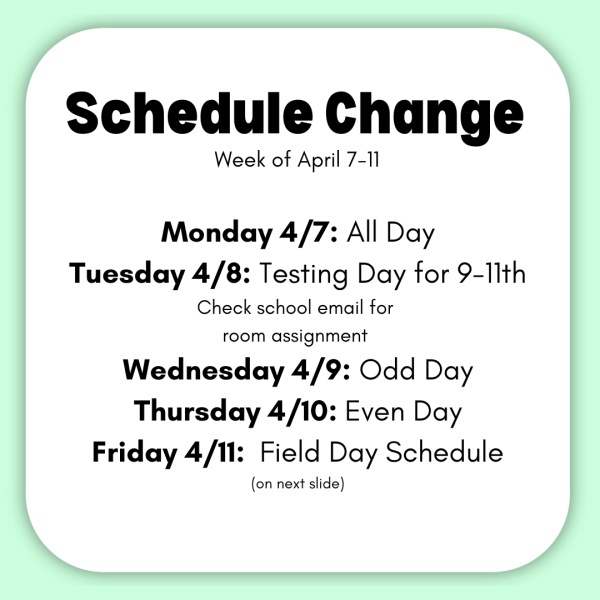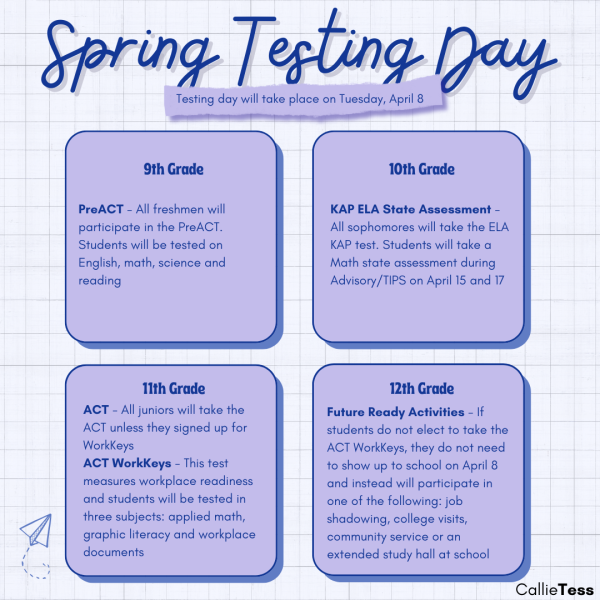President Trump ends to end Deferred Action for Childhood Arrivals
With news that was followed with controversy from every corner of the United States and beyond, president Donald Trump and his administration announced their plan to slowly dismantle the Deferred Action for Childhood Arrivals, or DACA, on Sept. 5.
The current plan to end the policy on March 6, 2018, has impacted both immigrants and citizens born in the United States. Junior Rand Alazzeh said it’s caused a lot of anxiety among her family and the immigrant community.
“It’s just a little stressful,” Alazzeh said. “Putting that fear in other people, by getting rid of it and all that, it caused a lot of stress in people.”
According to The New York Times, DACA is a program that began in 2012, and protects child immigrants who were 15 or younger when they arrived in America. Vox.com, a news website, noted that the current average age of those in the DACA program is 6-and-a-half years old, highlighting how young members may be.
“I was the first generation born in America; my parents both immigrated over,” Alazzeh said. “It’s just crazy to think if I had been born just a couple months earlier, or anything like that, either I wouldn’t be living here, I wouldn’t have citizenship, or I would be in the DACA program, which is now ending.”
According to CNN, many “DREAMers” — as the members of DACA call themselves — gathered to protest following Trump’s announcement out of fear they’d be deported. In addition, many were angered by the decision due to the effect it would have on DREAMers. Senior Raaham Sheikh said he felt the movement to end DACA is “unfair.”
“My biggest concern is that those around me have to go back,” Sheikh said. “And also for people that aren’t able to speak their native language who have to go back to a country where they have never been able to [go back to before].”
With around 800,000 members at risk of being sent back to their home country according to CNN, Alazzeh said the deportations are what worry her the most.
“If this actually goes through and we do have to deport all these people, how are these people going to adjust and contribute to society in a place that they’ve never been before?” Alazzeh said. “Most of them have never been there, and they’re just being thrust into an unknown world. How are they going to adjust?”
An estimated 433 billion dollars is expected to be lost over the next 10 years due to the deportations of those without citizenship caused by DACA’s shutdown, according to CNBC.com. Junior Drew Thomas said that legal immigration is important to the economy and should be continued in a safe manner.
“Many people have created their lives there and had start-ups and successful, enjoyable lives, and lived the American dream because of this organization,” Thomas said.
In addition to this, Thomas said Trump was currently doing what he’d always planned to do once he was elected. The Encyclopedia of American Politics reports that Donald Trump’s original plan for immigration during the election was to deport all illegal immigrants.
“I feel like if we just look at raw numbers, illegal immigration has gone down 75 percent,” Thomas said. “I think that’s great. I felt like the way he went about it was strong-fisted and with an iron hand, you could say.”
According to The Denver Post, many reacted in a positive manner regarding the program’s end. After being debated among government officials for nearly 15 years, many members of Congress had long-awaited DACA’s end. Sheikh said there have been mixed reactions and it was a little weird to see students react.
“It’s been overall a more positive than negative impact,” Sheikh said. “People have been more supportive of the law and those around me were more considerate. Our community just tends to stay inside their bubble, and not really react to these kinds of issues in the way that other communities are able to or adept to.”
According to the Migration Policy Institute, the state of Kansas holds a minuscule one percent of the United States population of DREAMers, while places like California and Texas hold 14 percent and above. Thomas said if one went outside of Johnson County, a larger impact would be seen.
“I’d say in my surrounding community, many people don’t know what DACA is or what it stands for, don’t know the current things that have been passed for it and do not understand the significance because of [Trump] trying to end it,” Thomas said.
According to vox.com, many people have had questions following the logistics of DACA, as well as its phaseout. While there is still information to be released from the Trump administration, United States citizens await answers.
“I felt like yes, there was a need for it to be more reformed, more checked,” Thomas said. “I felt like they took just a very quick stance, a quick shutdown of the organization.”
The Denver Post reports that many DREAMers have begun preparing out of concern that they’ll be kicked out of the country. Alazzeh said that DACA’s end felt too fast, and the fear Trump’s announcement put in people was not worth DACA’s cutoff.
“I think that he could — instead of eliminating the whole thing — he could’ve just tweaked it in a way that could have probably helped the country a little better, rather than just completely eliminating the whole thing,” Alazzeh said.
The six months the organization has left are intended to be a period of time for Congress to legalize DACA, enabling it to continue, according to migrationpolicy.org. Alazzeh said the issue isn’t done with, and more decisions would be made. She also said more and more “negativity” and panic would follow the uncertainty of the situation.
“I think a lot more people are going to be living in fear of being thrown out of the only home they’ve known their entire lives,” Alazzeh said. “Imagine that suddenly some of your classmates you’ve known since elementary school suddenly disappeared. They are regular people who have developed friends and family as well as lives here. That’s not something you can take away scot-free.”







